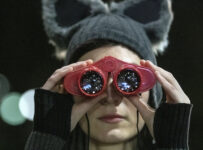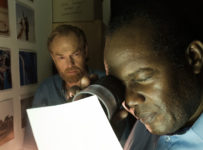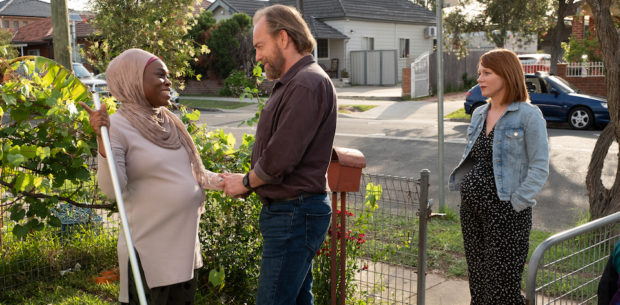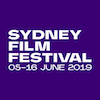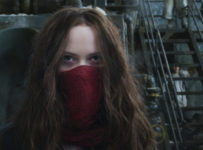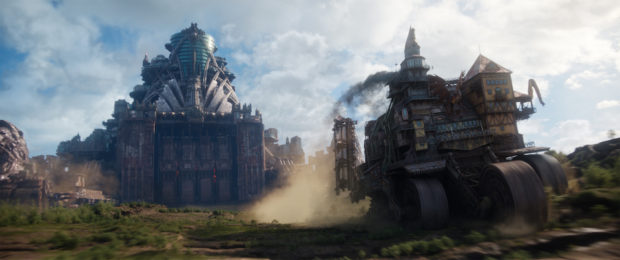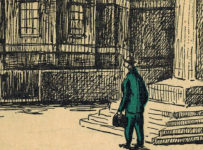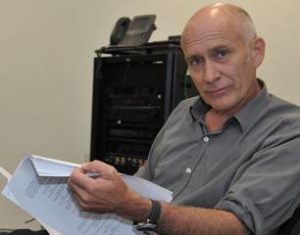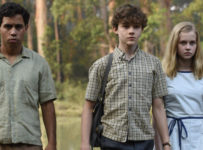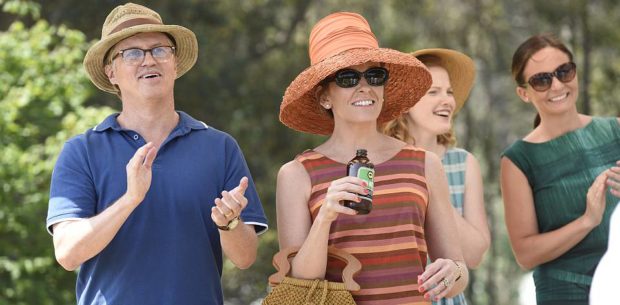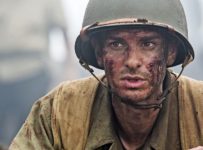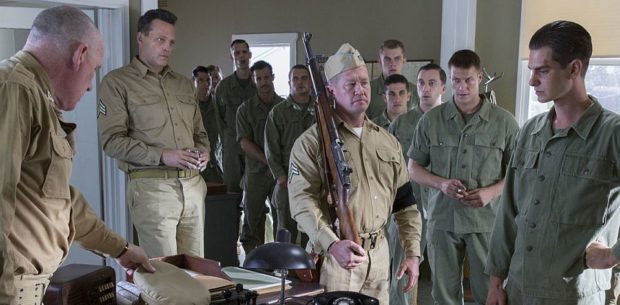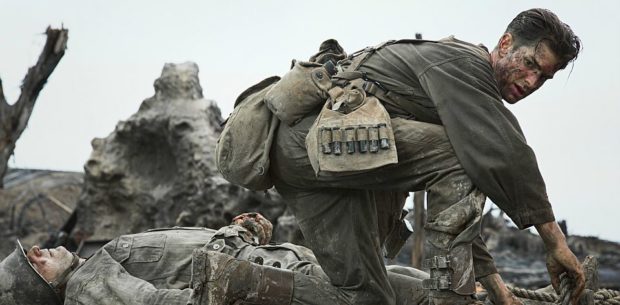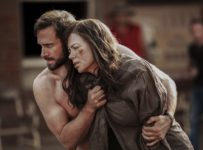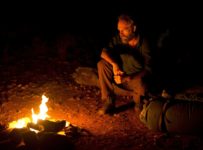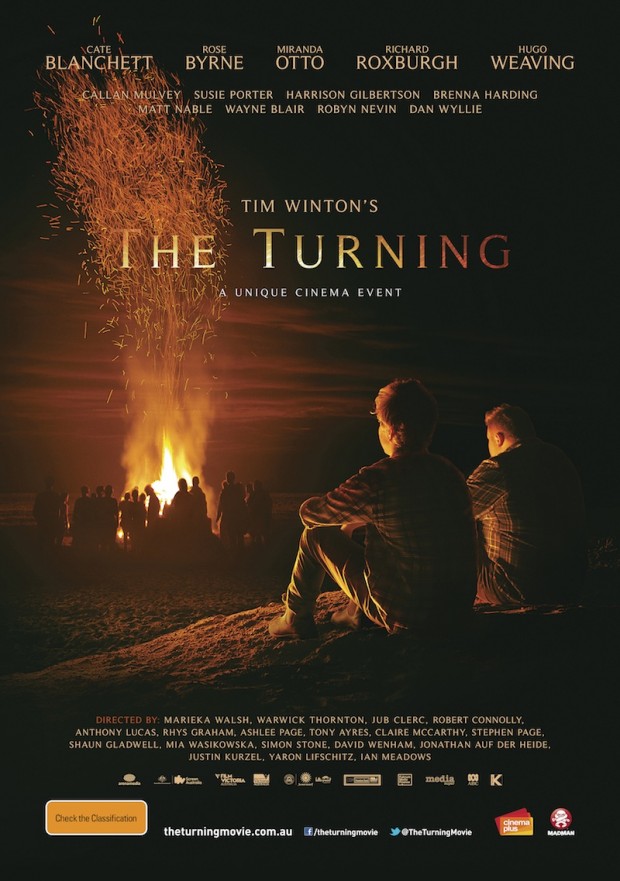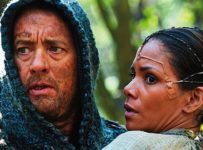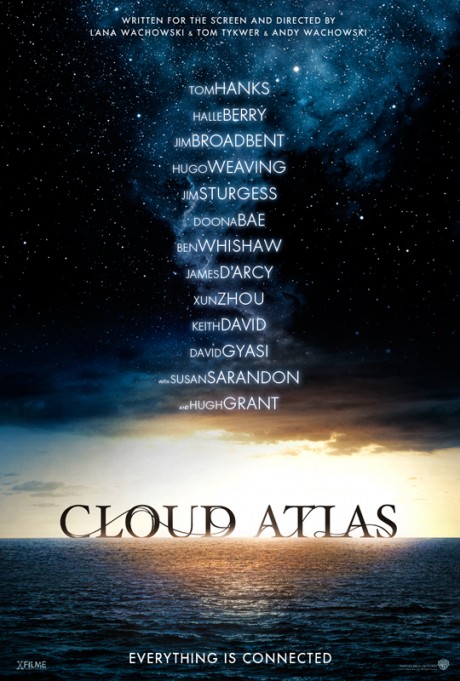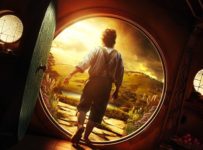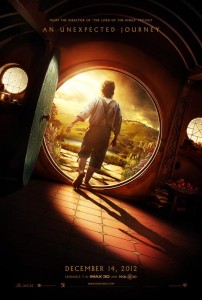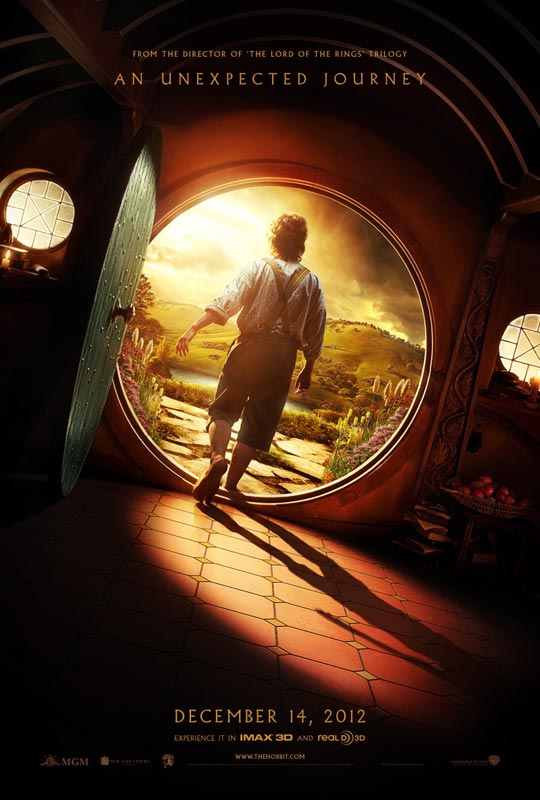If there’s two things that continue to adapt to our modern age, it’s surveillance techniques and Joseph Conrad novels. Jonathan Ogilvie, who we last saw behind the camera on 2008’s The Tender Hook, combines the two in an intriguing mystery set in Melbourne’s not-too-distance future.
In the film, loosely based on The Secret Agent, an enigmatic Police Minister (Hugo Weaving) is asked to review some surveillance footage of Winnie (Tilda Cobham-Hervey), an adult book store clerk tied to some potentially shady dealings with Conrad (Josh McConville). Thanks to her disabled younger brother Stevie (Chris Bunton) continuously filming on his phone, and the many cameras around Melbourne, there’s ample stock to construct a case.
Ogilvie reportedly spent five years developing LONE WOLF, and it’s clear that a lot of love has gone into this production. Originally conceived as a 2D/VR hybrid set in Sydney, it was decided to roll back to traditional 2D only following several tests. This part of the development is evident in the final cut, as the camera spends a long time on street corners or locations as establishing shots.
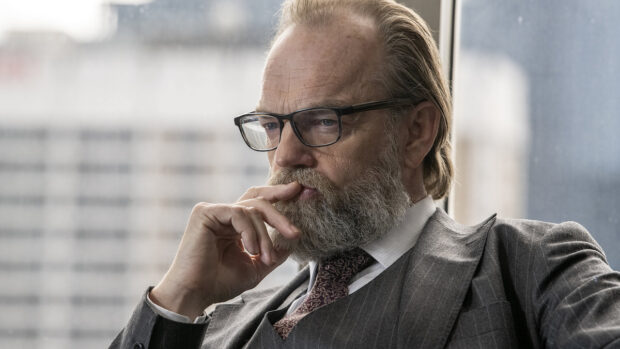
Which might be where the film loses some momentum. Ogilvie’s primary aim with this film was to build a narrative out of surveillance footage, sort of a fictionalised version of what Dragonfly Eyes did with real footage a few years back. You can totally imagine standing inside this VR world and looking at things unfold, much the way that short films like Bloodless left you feeling voyeuristic and complicit in a crime. However, by the end some of the lengthy cutaways tend to muddle the plot a little bit.
Yet thanks to some slick photography and a solid cast, Ogilvie’s film remains mostly engaging throughout. Coming off the back of I Am Woman, Cobham-Hervey is every ice queen that’s ever worked a book/record store. Ogilvie’s commitment to casting an actor with a disability in the part of Stevie pays off in Bunton, a young actor who already impressed audiences in last year’s Relic. Weaving doesn’t so much phone it in as Skype it, but he and associate Stephen Curry are welcome screen presences.
Although ultimately debuting at the International Film Festival Rotterdam, LONE WOLF was made under the auspices of the MIFF Premiere Fund. The themes of threatening surveillance are universal, but it will be interesting to see how this plays with audiences more familiar with the city. Meanwhile, Ogilvie’s next film is reportedly Head South, set during the New Zealand post punk scene of the late 1970s.
2021 | Australia | DIRECTOR: Jonathan Ogilvie | WRITER: Jonathan Ogilvie | CAST: Hugo Weaving, Tilda Cobham-Hervey, Chris Bunton, Marlon Williams, Diana Glenn, Josh McConville, Stephen Curry| DISTRIBUTOR: Future Pictures/Level K, International Film Festival Rotterdam | RUNNING TIME: 100 minutes | RELEASE DATE: 1-7 February 2021 (NL)
